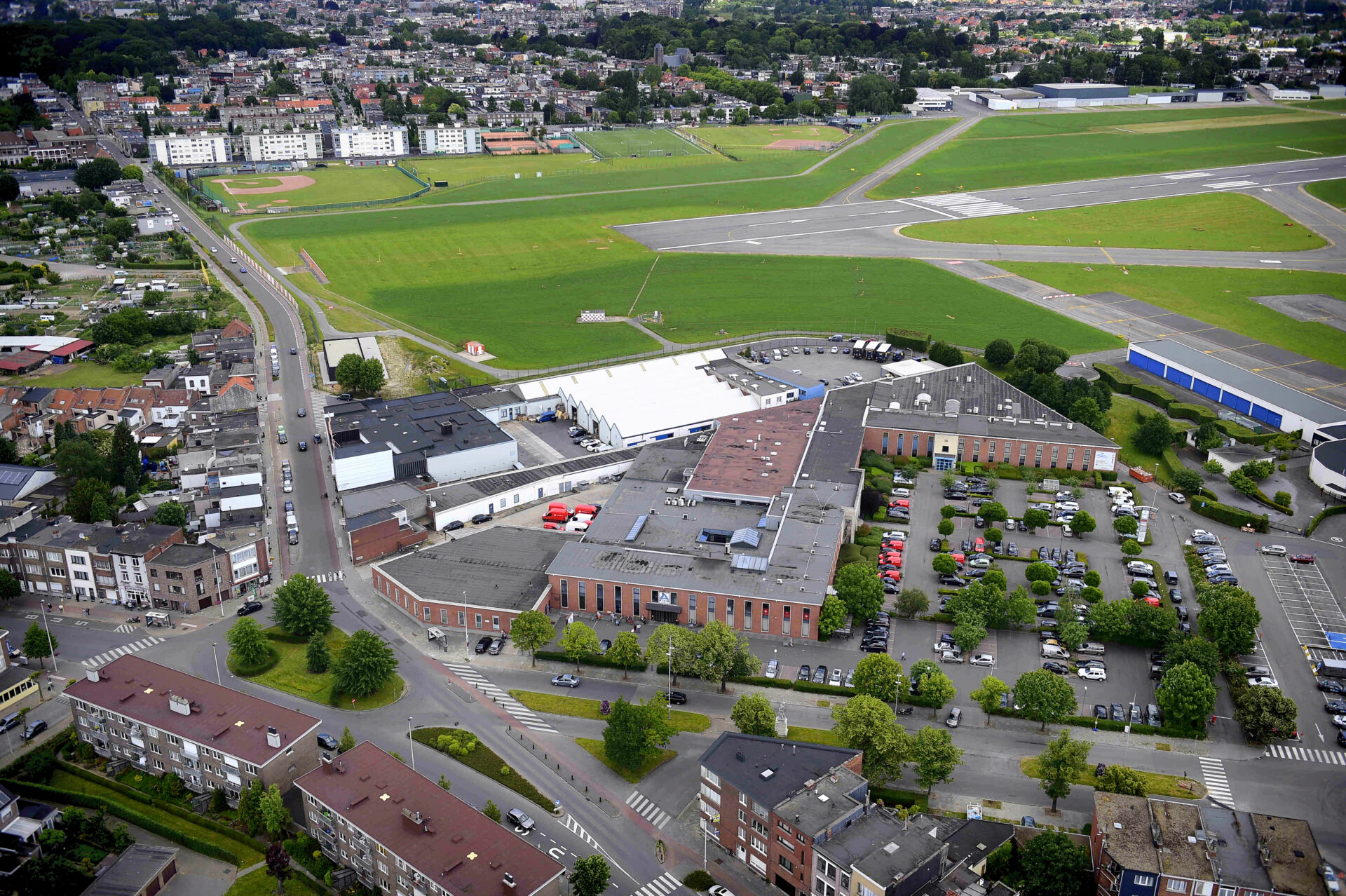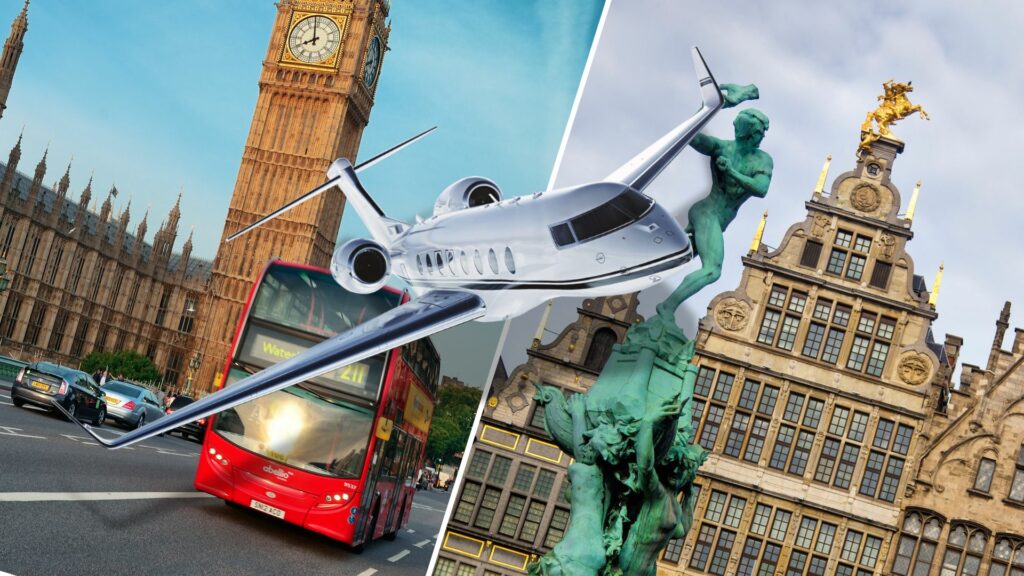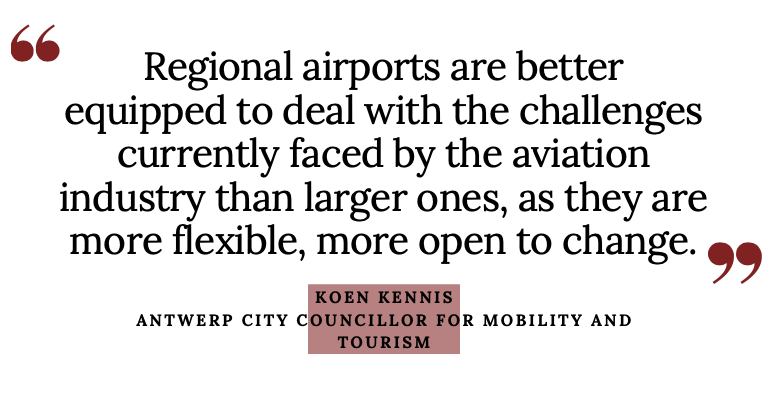From this week, the flight route between Antwerp and London has been re-launched with four flights each week shuttling between Belgium and the British capital, increasing to five from the end of March 2023.
Antwerp Airport reopened what has been referred to by stakeholders as an "iconic connection" with London City Airport on Monday. The 50-minute flights are operated by Luxembourg-based airline LuxAir. The company has heralded it the "fastest and most pleasant way to travel" from England to Europe.
The return of the route has been called "a milestone" for tourism and business in the Belgian city. "We certainly believe the re-launch of the route meets a real demand," the office of Antwerp city councillor for Mobility and Tourism Koen Kennis told the Brussels Times.
Local impact
The resurrection of the route is part of the expansion of the regional airports and was approved by the Flemish government late last year after months of lobbying and research. The re-launch was driven by the argument for regional airports bringing a boost to Flanders’ economy and Antwerp Airport is seen as an especially valuable transport node.
"Antwerp is Flanders’ biggest city, the economic powerhouse of Belgium, home of Europe’s second port, a gigantic petrochemical cluster, and known as the diamond capital of the world," Kennis stated. He added that tourism in Flanders will also benefit.

An aerial view of Antwerp Airport. Credit: Belga/ Yorick Jansens
Opponents of the expansion argued that the project wastes millions of euros in taxpayers' money due to the airport's proximity to Belgium's biggest airport in Zaventem, which also offers flights to the English capital. The mandatory renewal of environmental permits next year and previous building violations also worry opponents.
Yet Kennis countered that smaller regional airports are better equipped to deal with the challenges currently faced by the aviation industry as they are "more flexible, more open to change," and can be used in case of major strikes in Charleroi and Zaventem.
Antwerp Airport's press officer, Tom Rutsaert, told The Brussels Times, that the trip from Antwerp Airport is also more practical, as passengers "do not need to arrive two hours in advance due to its smaller size and efficiency: "Arriving 30 minutes in advance is sufficient."
A step backwards?
As to whether flying between London and Antwerp makes environmental sense, Kennis vaunted new sources of fuel as a way of reducing the pollution brought by the industry. Yet this argument is somewhat flimsy – especially as Belgium and the EU try to encourage short-distance travel by train as a more sustainable alternative.
The airport's relative proximity to Brussels, from where the Eurostar takes passengers to the heart of London several times each day (on a vastly less polluting means of transport: a train) is a strong argument against restoring the flight route.
A full Eurostar carries 900 passengers, while a Luxair plane carries just 76 passengers. One flight between Brussels and London has the same carbon footprint as 12 journeys by train.
During the launch ceremony, Kennis stated that he "has nothing against trains," but added that "they do take in a lot of space," and that the capacity of train travel is limited – a rather disingenuous argument given the minimal impact that train stations have on urban planning compared to airports, which often frustrate locals with noise pollution.
"The Belgian railways are not even capable of taking people to work on time on a daily basis. As far as I am concerned, the timing of LuxAir with its flights from Antwerp to London is right."
Yet Kennis said that the route "will happen in a context in which the aviation industry is cooperating in making travel increasingly environmentally friendly. A regional airport such as Antwerp Airport can even lead the way on this."
Related News
- ‘Flight ticket prices could increase by 10% this year,’ says Ryanair CEO
- Ryanair confirms permanent closure of Brussels Airport base
Meanwhile, Rutsaert noted that the aeroplane used for this route is a "very fuel-efficient aircraft, as its CO2 emissions are 40% below the European average," and that the airport is "committed to sustainability."
"We are doing everything possible to electrify our fleet of vehicles as soon as possible. During work on the runway, 50% of the asphalt was reused and all lights were replaced with energy-efficient LEDs. A new sewer system was also provided and rainwater will now be buffered at the airport to serve as a back-up supply for the ponds at Boekenberg Park."


